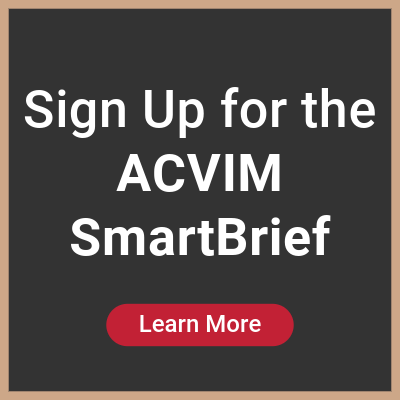Puerto Rican Internist hopes visibility can inspire increased diversity in veterinary specialty medicine
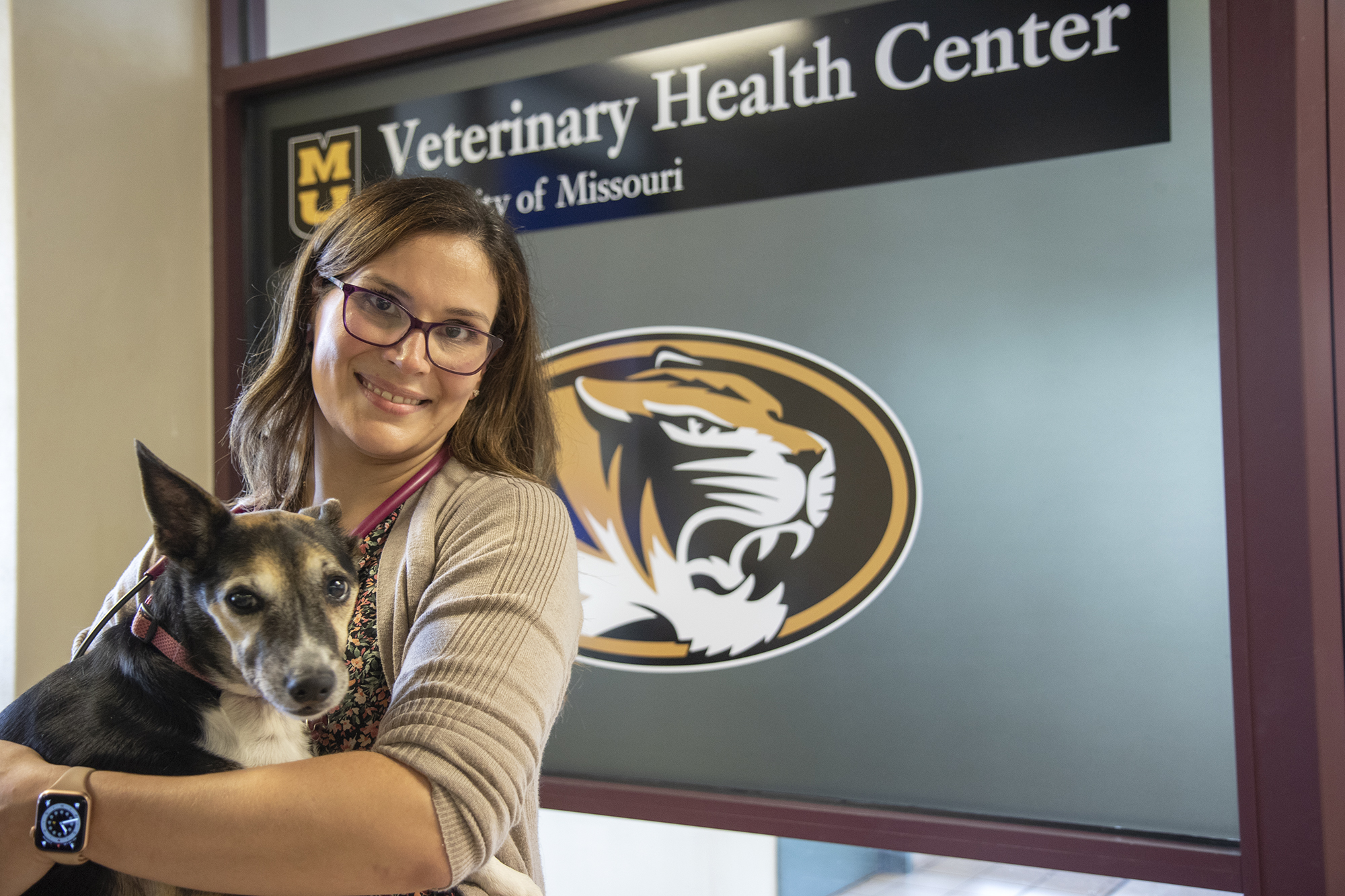
1 Photo credit: Karen Clifford, Multimedia Specialist, University of Missouri College of Veterinary Medicine
While growing up helping her parents at their veterinary clinic in Guaynabo, Puerto Rico, it didn’t take long for Aida Vientós-Plotts, DVM, PhD, DACVIM (SAIM) to fall in love with veterinary medicine.
“My father is a veterinarian and my mother is a veterinary technician,” Dr. Vientós-Plotts says. “I was lucky enough to be able to do every single job in a veterinary clinic, including cleaning cages, answering phones, assisting in surgery…you name it, I did it.”
While this early exposure to all things veterinary medicine may have made her future career choice easier, it also filled her with an insatiable curiosity and desire to do more.
“Deep down, I knew I wanted to do more than general practice,” Dr. Vientós-Plotts explains. “I wanted to have the time to dive in and be able to understand the details of behind what was happening to the patients.”
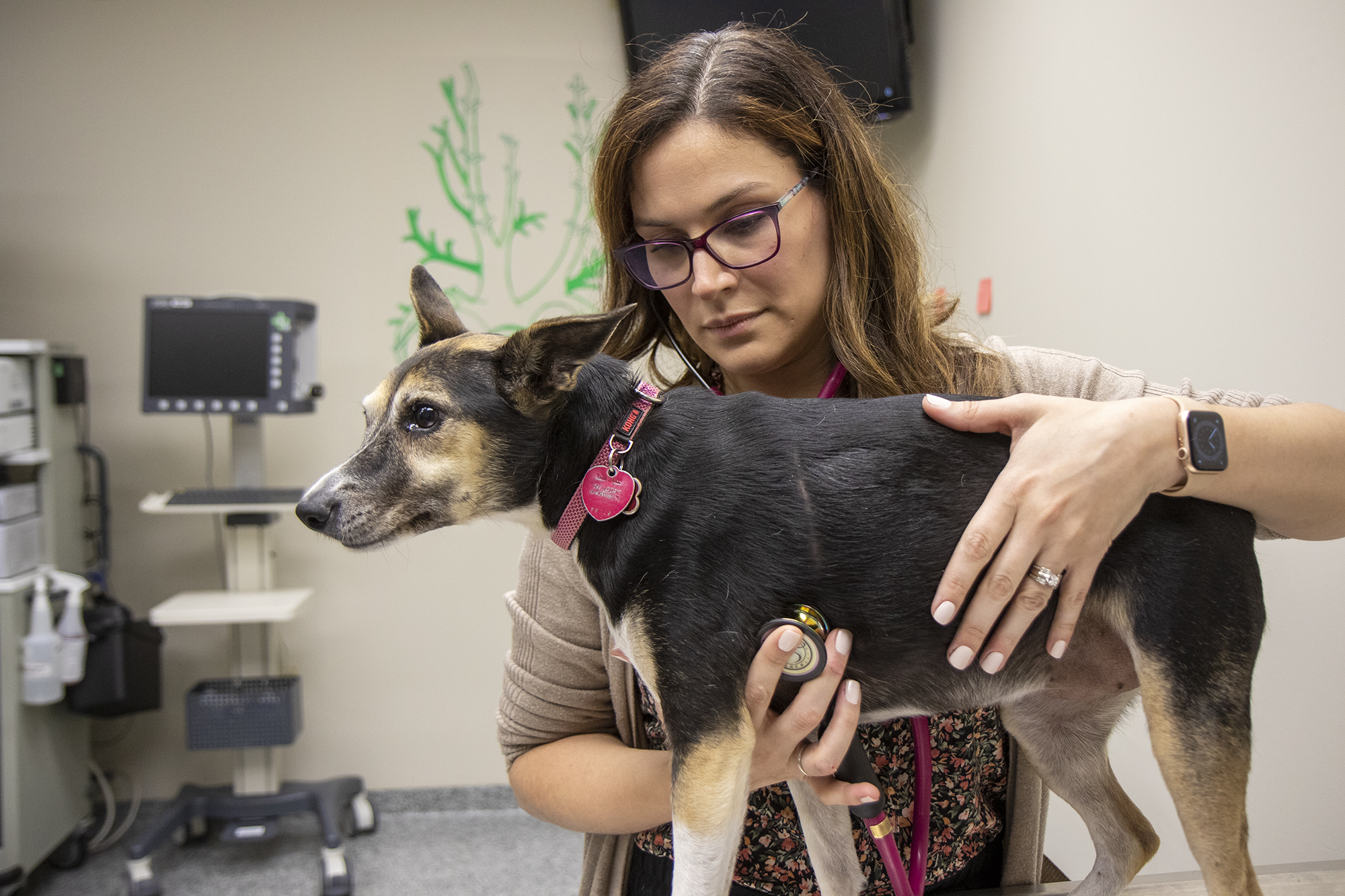
After completing high school in Puerto Rico, Dr. Vientós-Plotts attended veterinary school at Tuskegee University in Alabama. Towards the end of her second year, she realized that her love for complex case management and the need for a deeper understanding of physiology was pointing her toward specialization in internal medicine.
This pull towards internal medicine also inspired Dr. Vientós-Plotts to help establish an ACVIM Student Chapter at Tuskegee, which led to her and fellow chapter members attending their first ACVIM Forum.
2 Photo credit: Karen Clifford, Multimedia Specialist, University of Missouri College of Veterinary Medicine
"I distinctly remember attending a Q&A panel for aspiring specialists, as well as other sessions at the ACVIM Forum that were geared towards students,” Dr. Vientós-Plotts recalls. “Being at the ACVIM Forum as a student gave me the opportunity to see myself where they were one day.”
“I was diagnosed with ADHD while in veterinary school. I had done the best I could to adapt up until then."
After earning her DVM from Tuskegee and with her sights set on becoming an Internist, Dr. Vientós-Plotts went on to complete a rotating internship at Auburn University, followed by a small animal internal medicine residency and eventually a PhD at the University of Missouri. While experiencing these successes, Dr. Vientós-Plotts says that she was also facing significant challenges and setbacks that were less obvious.
“I was diagnosed with ADHD while in veterinary school. I had done the best I could to adapt up until then,” she recalls. “But veterinary school, and then residency presented me with new challenges.”
The most significant of these challenges was not passing her exams to become a Board-certified Internist the first time she attempted them. Dr. Vientós-Plotts says that prior to this, she’d never truly considered the possibility of failure.
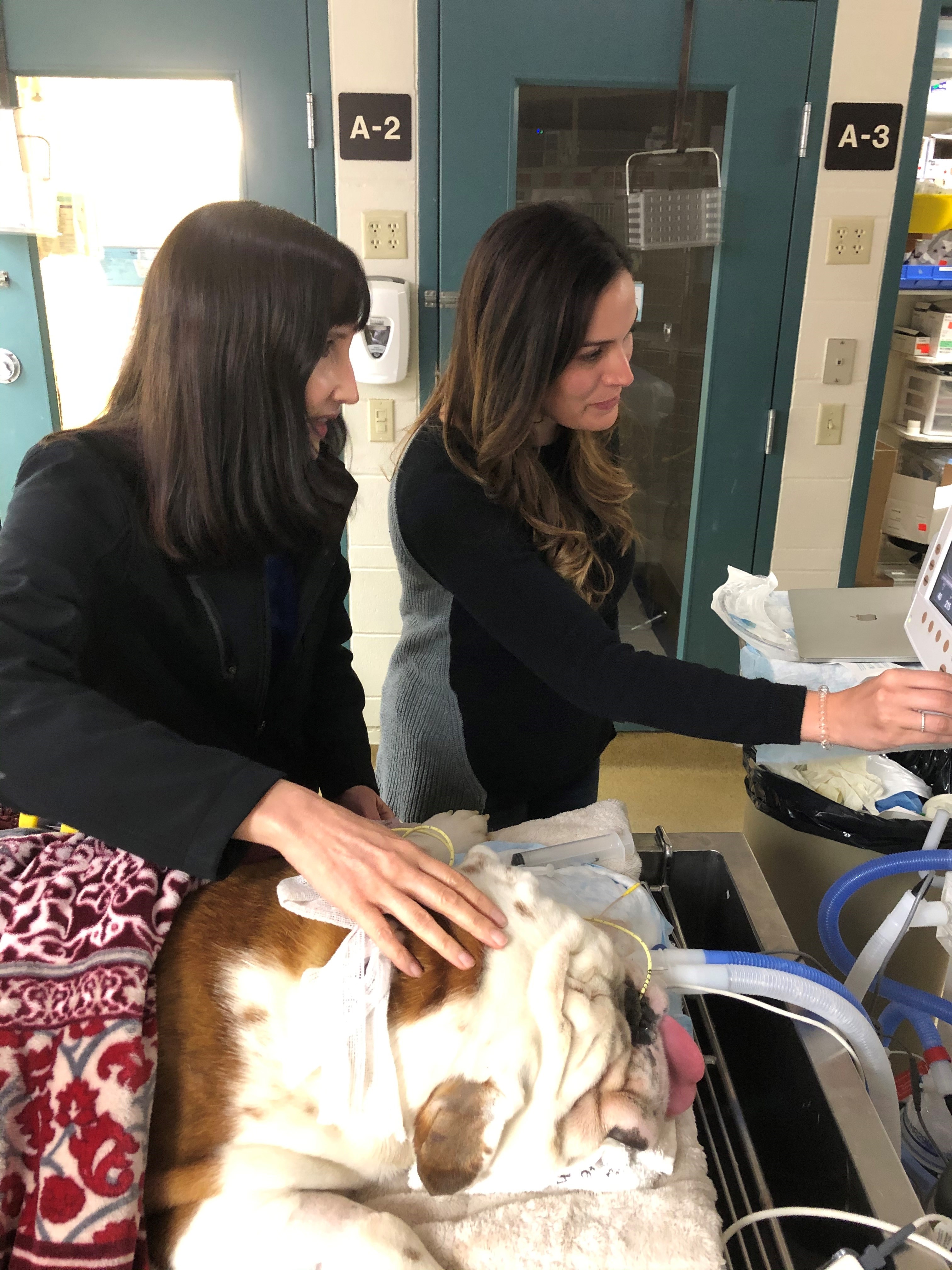
“Many of us are type A overachievers,” Dr. Vientós-Plotts says of people in specialty medicine. “Failure is not something that many people talk about.”
That’s why Dr. Vientós-Plotts says that having a support network of mentors who have faced similar challenges is vitally important, especially for minorities and those who identify as neurodiverse.
“I was surprised to learn that other people that I had looked up to had also faced challenges in their career, and that failing the exam didn’t mean I was a bad doctor, or that I wasn’t smart enough or good enough,” she explains. “It was just another obstacle I had to overcome.”
3 Dr. Vientós-Plotts at work.
With the support of her family, a counselor and her mentors, Dr. Vientós-Plotts retook the exams and passed the following year. Now an assistant professor of Small Animal Internal Medicine at the University of Missouri, Dr. Vientós-Plotts makes sure to tell her students and trainees that there is no shame in failing. She also hopes to provide an example for underrepresented students – the kind of example she would have liked to have when she was in their shoes.
“While I have had the privilege of finding amazing mentors along the way, I didn’t know of another Puerto Rican small animal internist in academia that I could look up to,” Dr. Vientós-Plotts says of her time as a student. “I still don’t.”
“Having the opportunity to talk and get advice from people who are where you want to be is invaluable."
Her best advice for underrepresented communities and particularly aspiring Latinx veterinarians or specialists is to “network, network, network.”
“Having the opportunity to talk and get advice from people who are where you want to be is invaluable,” Dr. Vientós-Plotts says. “Now there are many more resources like the Latinx VMA or the Multicultural VMA that have directories, panels, scholarships and opportunities to meet potential mentors.”
Within the ACVIM, Dr. Vientós-Plotts believes establishing a group dedicated to the discussion of these issues and potential solutions will be central to making real change within the college and the profession as a whole.
“The creation of the ACVIM Diversity, Equality and Inclusion (DEI) Committee and a strategic DEI plan is a good start,” she says. “But my hope is that it doesn’t stop there.”
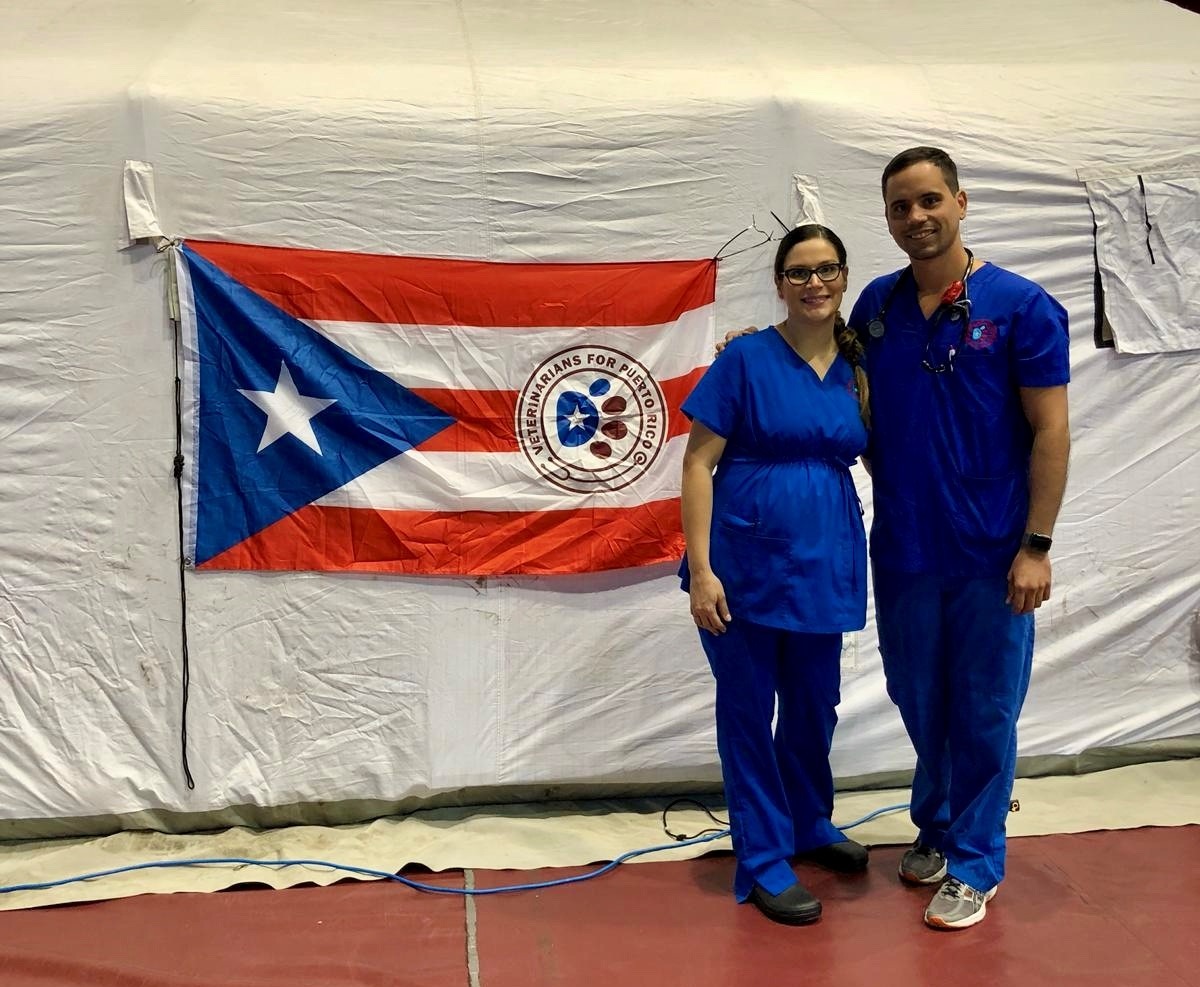
While Dr. Vientós-Plotts no longer resides in Puerto Rico, being able to give back to her profession at home has always been important to her. After Hurricane Maria devastated Puerto Rico in 2017, she and a fellow resident at the University of Missouri co-founded Veterinarians for Puerto Rico, a non-profit organization that aims to improve the lives of dogs and cats on the island through spay and neuter efforts. Since its inception, Veterinarians for Puerto Rico has facilitated over 15,000 spay/neuters and vaccinated close to 20,000 dogs and cats.
4 Dr. Aida Vientós-Plotts with Veterinarians for Puerto Rico co-founder Willie Bidot, DVM, MPH, MS, DACLAM
“More recently we’ve been concentrating on working with government offices, local rescue organizations, shelters, veterinarians and technicians to coordinate smaller but more frequent TNR (trap, neuter, release) clinics,” Dr. Vientós-Plotts says. “We also help provide more training for local veterinary professionals so that the work may continue for years to come.”
This summer, Vientós-Plotts returned home to speak at the Colegio de Médicos Veterinarios de Puerto Rico's annual conference. There, she helped provide two days of continuing education on respiratory medicine for local veterinarians and technicians.
“I often joke and say that I am a little bit of a unicorn. But I hope that someday, that is not the case and there are many others like me."
“It an incredibly rewarding, full circle moment for me, to be able to go back to home and share some of the knowledge I’ve gained so far with my colleagues in Puerto Rico,” Vientós-Plotts says. “To make the experience even more special, attendees included my parents, and many other veterinarians and technicians that have known me since I was a child.”
Somehow, between her work in Puerto Rico and her job at the University of Missouri, Dr. Vientós-Plotts also dedicates time to raising a family. A wife and mother of two young children, she works hard to balance all areas of her busy life as best as she can, while trying to be an example for other young women.
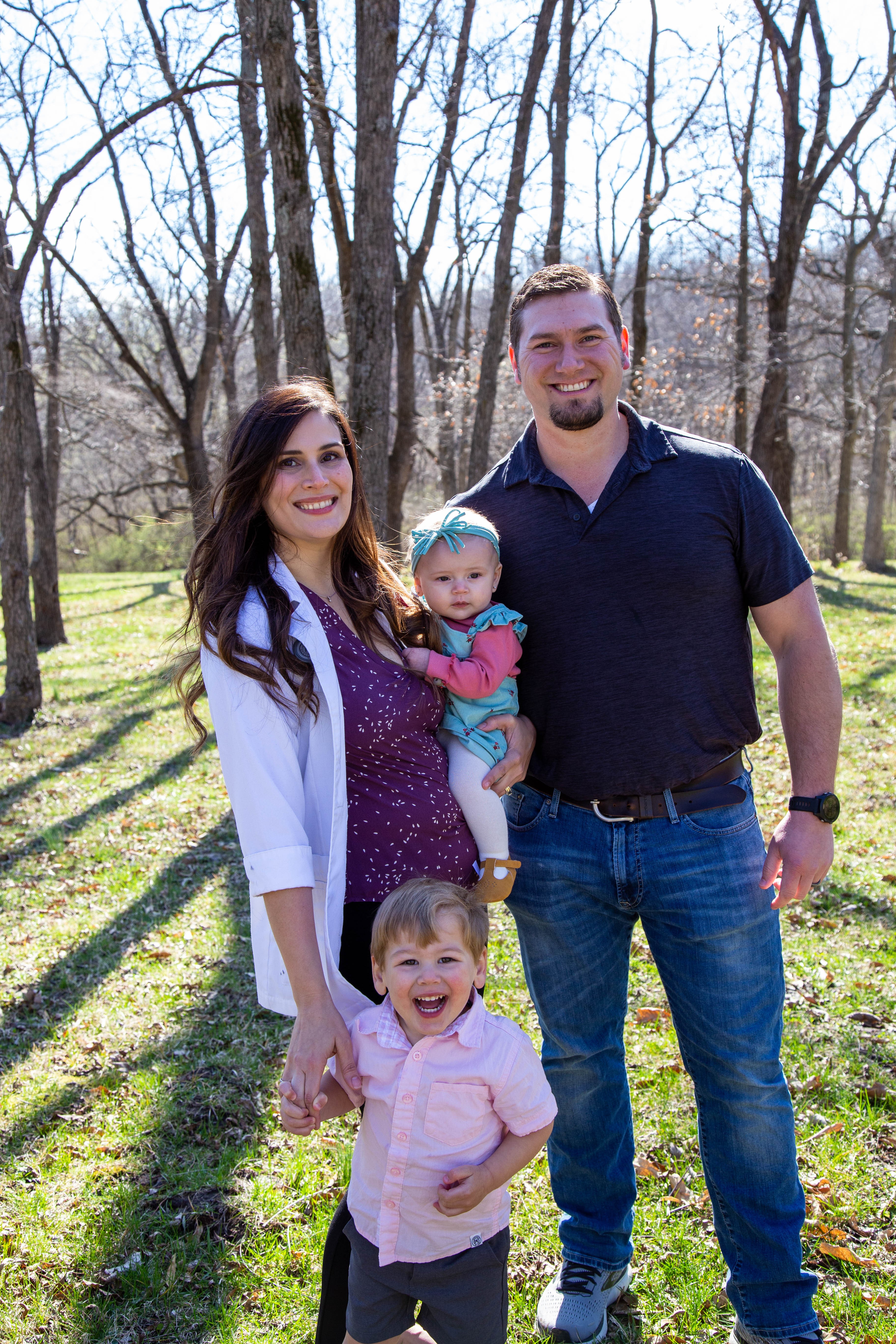
“I am a neurodiverse, underrepresented minority woman in specialty medicine at an academic institution,” she says. “I often joke and say that I am a little bit of a unicorn. But I hope that someday, that is not the case and there are many others like me... my career is just getting started, so I am excited to see what lies ahead.”
5 Dr. Vientós-Plotts and family.
Despite the challenges and setbacks she experienced, Dr. Vientós-Plotts says that determination and help from others along the way helped see her through it all.
“I didn’t do it alone,” she says. “I had support from my husband, my family, my coworkers and all my mentors. All of this to say that it wasn’t a straight road getting here, but I hope my story helps other aspiring veterinarians and specialists to know that with hard work, determination and a supportive network they can do it too.”
